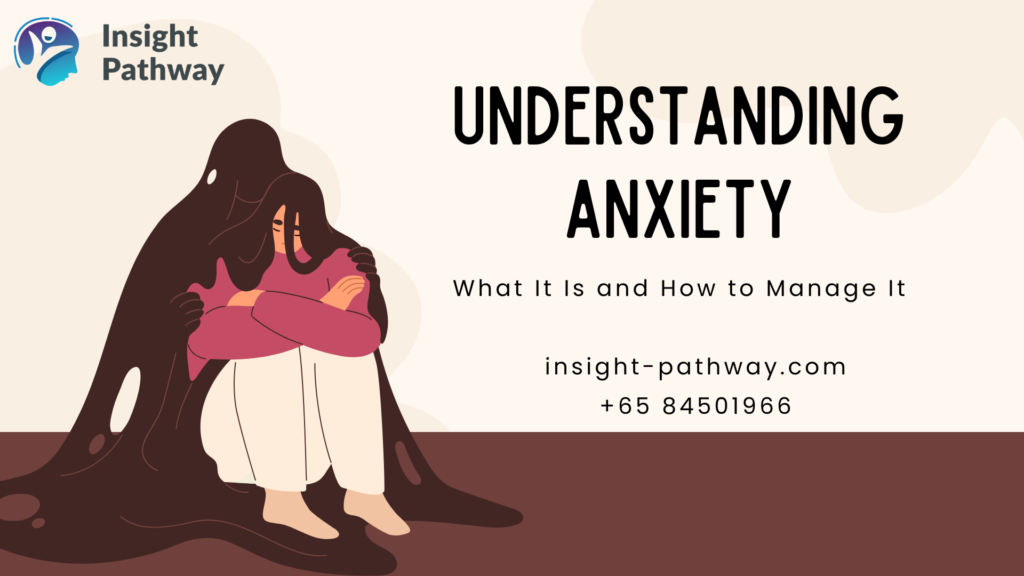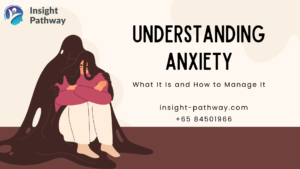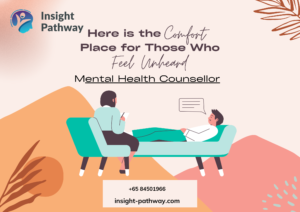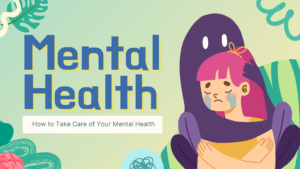If you’ve ever found yourself stuck in a loop of worry or anxious thoughts, you may have tried tackling it on your own. Self-help strategies like journaling, meditation, or breathing exercises can be helpful tools. But sometimes, anxiety runs deeper, and professional mental health support offers something self-help can’t quite reach.
In this blog, we’ll dive into the differences between self-help and counselling for anxiety and look at why mental health services often make a more profound and lasting impact.
Understanding Anxiety: Why Self-help isn’t Always Enough
Anxiety goes beyond just feeling worried from time to time—it’s often a deeply rooted response that can be triggered by something as simple as an unexpected phone call. While self-help resources like articles, meditation apps, or journaling can offer some relief, they mostly help in the moment. These techniques provide ways to manage anxious thoughts temporarily, ease stress, and improve day-to-day wellbeing. For example, practising mindfulness or enjoying activities like yoga or a walk can help soothe the mind and create a welcome distraction from those racing thoughts.
However, self-help has its limits. These techniques usually provide short-term relief and don’t always tackle the underlying causes of anxiety. Without professional guidance, it can be challenging to identify triggers, understand recurring thought patterns, or get to the deeper roots of anxiety. Anxiety counselling offers a structured and personalised approach designed to address both the symptoms and the root causes of anxiety.
Anxiety Counselling: Going Beyond Surface-level Relief
Professional counselling services go beyond short-term fixes, offering a more comprehensive path to understanding and managing anxiety. Here’s how they make a real difference:
1. Personalised Approach
Each person’s experience with anxiety is unique. Through anxiety counselling, a mental health professional assesses your history, symptoms, and triggers to create a customised plan. Unlike one-size-fits-all self-help methods, this personalised approach targets specific areas causing distress. Using therapeutic techniques like cognitive-behavioural therapy (CBT) or acceptance and commitment therapy (ACT), clients can learn coping mechanisms tailored to their unique needs.
2. Uncovering Root Causes
Self-help techniques often focus on symptom relief, but counselling digs deeper into the root causes of anxiety. Past trauma, negative thought patterns, or chronic stress may all contribute to anxiety. A mental health professional helps clients explore these origins, uncovering how past experiences might be fueling current feelings. This process of discovery is essential for long-lasting relief.
3. Guidance and Accountability
One of the biggest benefits of mental health services is the consistent support of a trained professional. A counsellor helps you stay motivated and committed to improving your mental health. With regular sessions, you’ll set realistic goals, track your progress, and gain encouragement—things that are often challenging to maintain with self-help alone. This steady guidance can boost your confidence and sense of achievement as you make progress.
4. A Safe, Supportive Environment
Anxiety can be isolating, especially when it feels like others don’t understand what you’re going through. In counselling, you’re given a confidential, non-judgmental space where you can openly share your thoughts and emotions. This kind of support can be healing, allowing you to release feelings you might have been holding onto for a long time. It’s a place where you can feel truly heard, understood, and supported.
5. Building Long-term Skills
One of the best things about anxiety counselling is the long-term skills you learn to maintain your mental wellness. Techniques from CBT can help you reshape negative thought patterns, while mindfulness-based therapies teach you how to observe your thoughts without becoming overwhelmed. These skills go beyond the counselling room and can empower you to manage anxiety in everyday situations independently.
Self-help strategies are valuable for managing anxiety day-to-day, but they’re most impactful when combined with professional counselling. This balanced approach gives you a comprehensive toolkit for managing anxiety—where counselling offers depth and insight, and self-help provides ongoing, everyday support. Insight Pathway – counselling services in Singapore – connects you with trained experts who can help you dive deeper into understanding and managing your anxiety. With professional guidance, you’ll gain strategies to keep anxiety from taking over and build a healthier, more resilient relationship with stress and worry.
Conclusion
Managing anxiety is a personal journey, and there’s no one-size-fits-all solution. Self-help is a great starting point, but for those looking for a deeper, more sustainable impact, anxiety counselling provides an approach that goes beyond surface-level relief. By combining professional guidance with self-help practices, you’re investing in lasting mental health, equipping yourself with the skills and insights to face anxiety with resilience and confidence. Embracing this balanced approach to mental health can truly make a difference, helping you lead a fuller, more fulfilling life where anxiety doesn’t hold you back.




